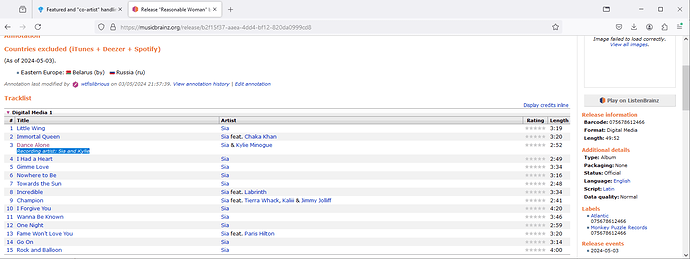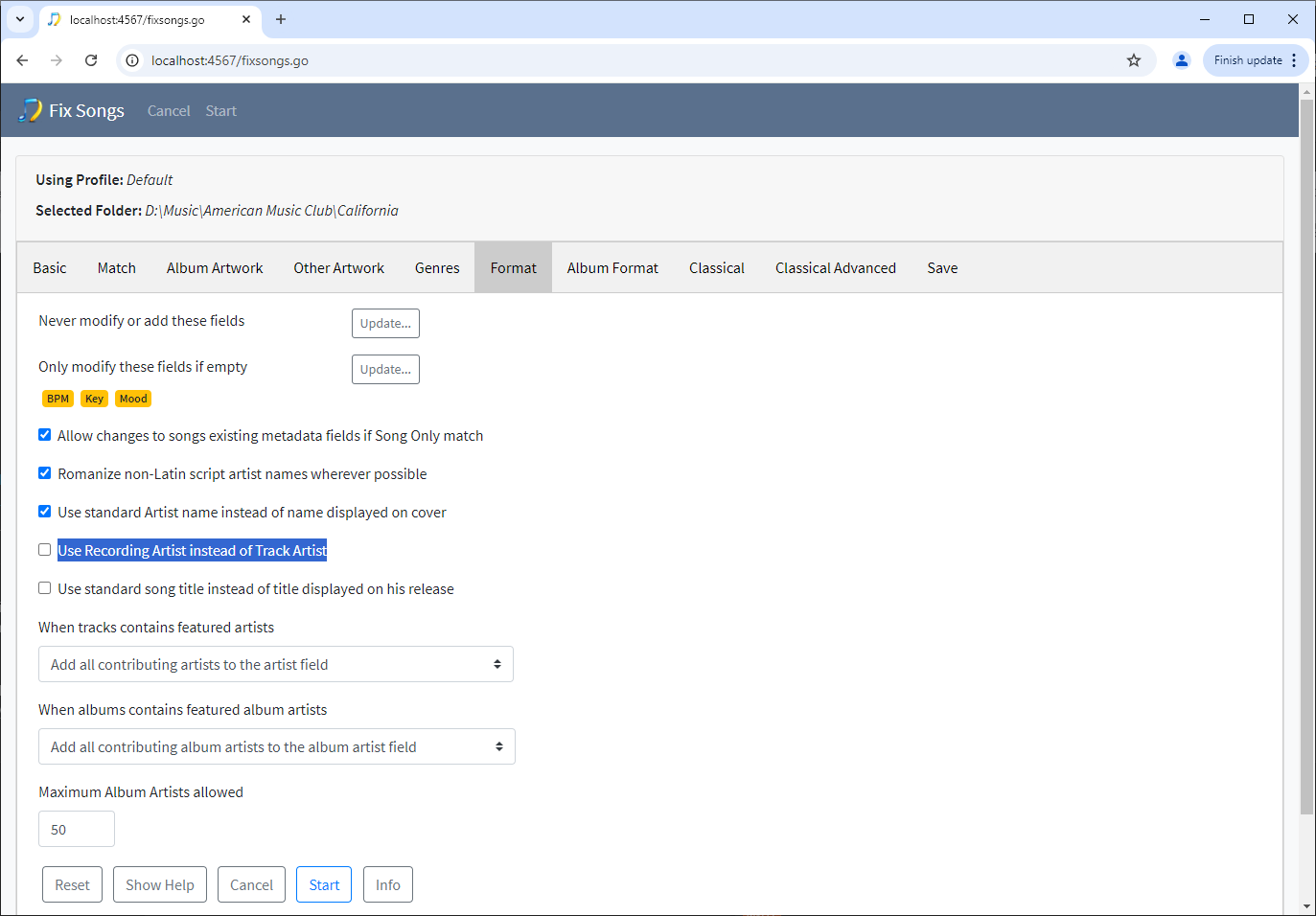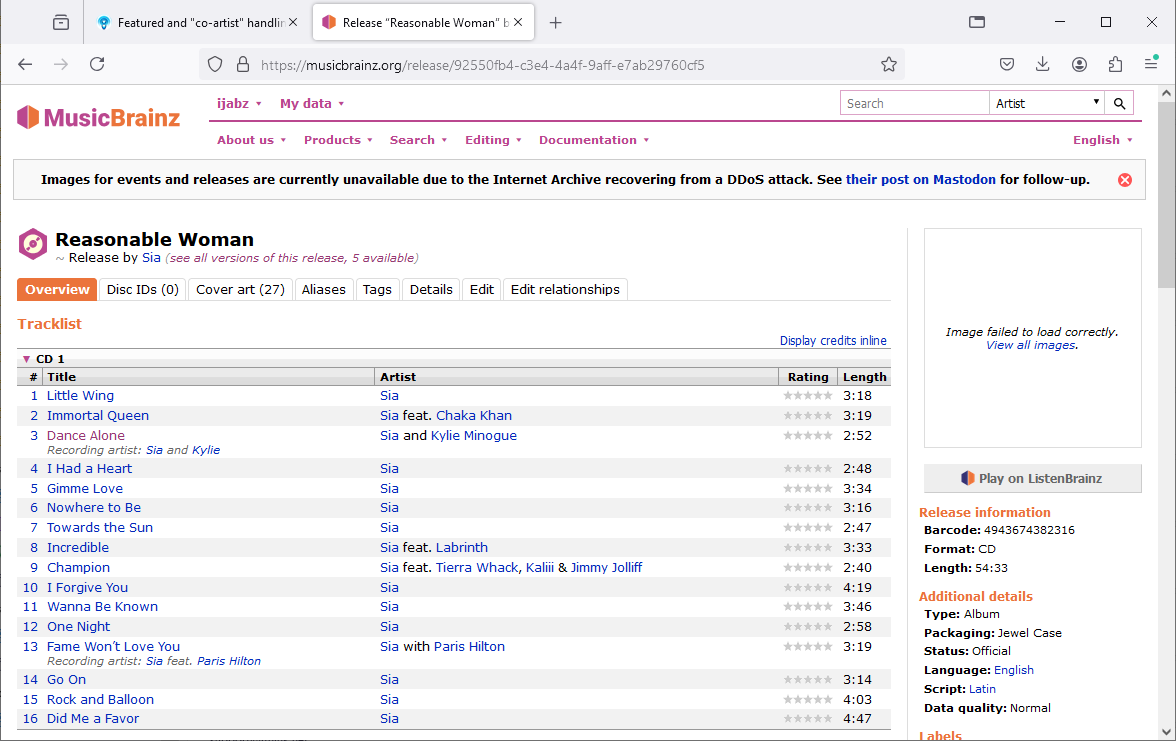Hi Paul,
I’ve spent several hours thinking about this now, writing, rewriting, reading and exploring (rediscovering!) the existing capabilities of Jaikoz and SongKong, and, I’m getting tired or trying to make this post really coherent and brief. 
That said, the TLDR is:
I’m not sure… I think it may be a better feature for the ‘Scripter’ mentioned in https://jthink.atlassian.net/jira/software/c/projects/SONGKONG/issues/SONGKONG-2625?jql=project%20%3D%20"SONGKONG"%20ORDER%20BY%20created%20DESC
I think the find-replace metaphor may not be ideal because I’d need to update TWO different fields (title and artist) based on relationship of two fields (artist and albumartist)
Here’s my more detailed/roundabout way of coming to that conclusion.
I had forgotten about the Auto Edit feature’s existence, having never used it.
I see the point you’re making in the first paragraph. And yes, you’re right; the real problem is that the [Track] Artist field is inconsistent for the album. This is only a problem when dealing with a UI that doesn’t know to pay attention to Album Artist. Actually, I think the subtleties regarding how a UI should treat Album Artist vs Artist in various scenarios probably warrants a small essay, so I’ll leave it at that, but acknowledge it’s really not quite that simple.
For purposes of this discussion, to work around brain dead UIs, the search and replace operation you’re suggesting would fix that part of the problem.
But it doesn’t update the title to include the co-artist info. (Or ‘other’ artist.). I would like to preserve their involvement in some way, even though that is of secondary concern.
I’m not sure the find/replace metaphor would work for this unless you could build up complex operations:
if (AlbumArtist != "Various Artists") {
set title = title + " ({ListOfContributors(AlbumArtist, TrackArtists)})"
set TrackArtist = AlbumArtist
}
This snippet assumes that there is a concept of a multi-valued “TrackArtists” (seems a fair guess) which includes all artists who worked on the track, including an indication of whether they were ‘featured’ or should receive “co-artist” billing. The “ListOfContributors” function would be responsible for figuring that all out. It could be defined by the user, or built-in.
So, my first thought is that this example may be more than you had in mind for the find/replace macro capability. (Actually, I think “find/replace” stops being a good name for it at this point. It’s just a script. (Note from Future Jason: It was shortly after I wrote this last bit, as part of a ‘go back and re-write that part’ that I went back and re-read your JIRAs and noticed you had made mention of a possible “Scripter”) It basically requires what amounts to a domain specific language. But I guess you kind of have that already in the file/folder renaming masks.
Assuming “artists” contains the required data, if you built this, I think that would satisfy my desire.
A few thoughts on that, however.
- I’d prefer not to have to run a separate find/replace operation after I’ve done fix songs (I may not even know that it’s required until later)
- If it was run as a separate operation, I be concerned about making sure the operation was defined in a way that makes it idempotent so that accidental multiple runs wouldn’t ‘corrupt’ the data. (imagine I have to run it on one album, and then later I run it for the artist, or my whole collection, etc.)
- If the operations could be chained to an existing Fix Songs or Monitor Watch Folder profile, that might help address both of the above concerns.
Is that what you had in mind? Or did I just make it way more complicated?
So, that’s where I was when I saw that you had mentioned a Scripter which I guess is on the roadmap, and I thought, crap, I don’t want to re-write all of this AGAIN :).
I think the Scripter (if it resembles what I described above) could do this. Find and replace? Meh, that might be hard (thinking about how that would apply to the title field).
I don’t know for sure that “Artists” is structured the way I’m assuming it is, but I’m guessing that whatever info you used to do the current “featuring” process could be made available, and that a user could write code that could tell the difference between a co-artist and a featured artist.
It would be good if Scripts could be added to Fix Songs and Monitor Watch Folder as post-operations (maybe pre-operations, too? Not sure. I don’t have a use case for that at this moment, and can’t really imagine what the point would be, before the data was Fixed. I guess that depends on what operations are in scope for Scripting.)
The checkbox with multiple options seems a lot simpler, but if you see another solution available that’s more general, flexible, and powerful, but needs your focus to deliver, I get it. I’m not sure how many users would be into that kind of tool. Maybe a lot. (I just realized recently that the community of people who own a swimming pool and maintain it themselves has a much higher proportion of nerds than the general public - maybe this is another such population!)
 )
)




